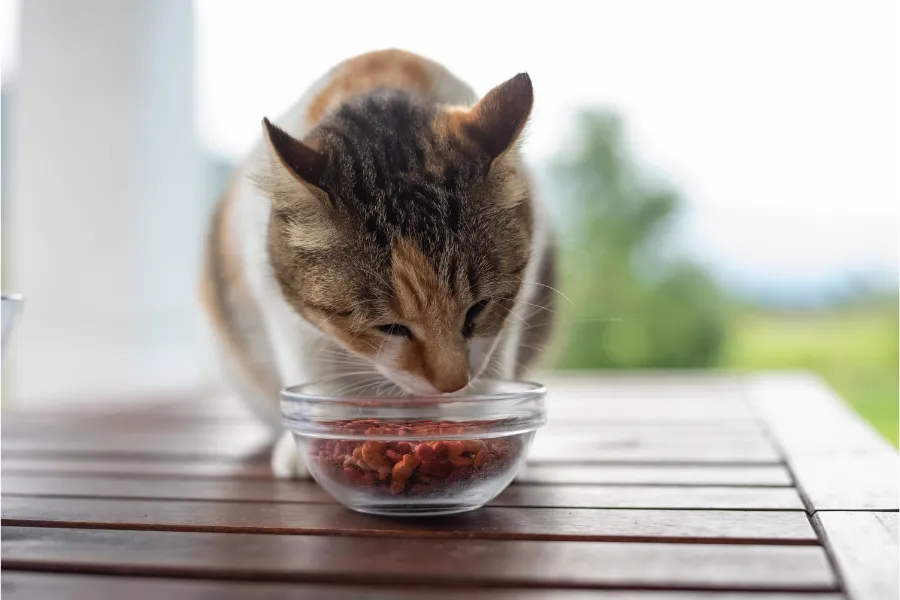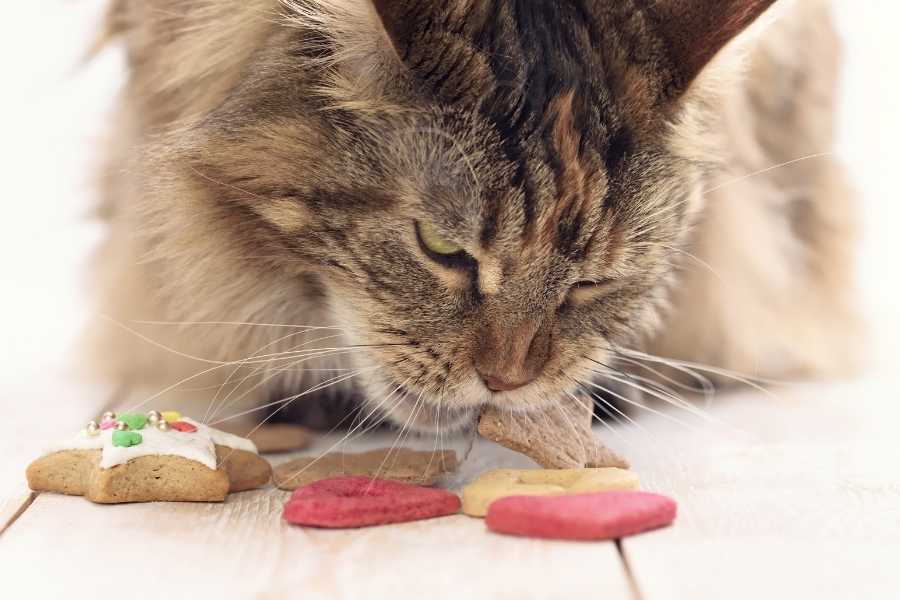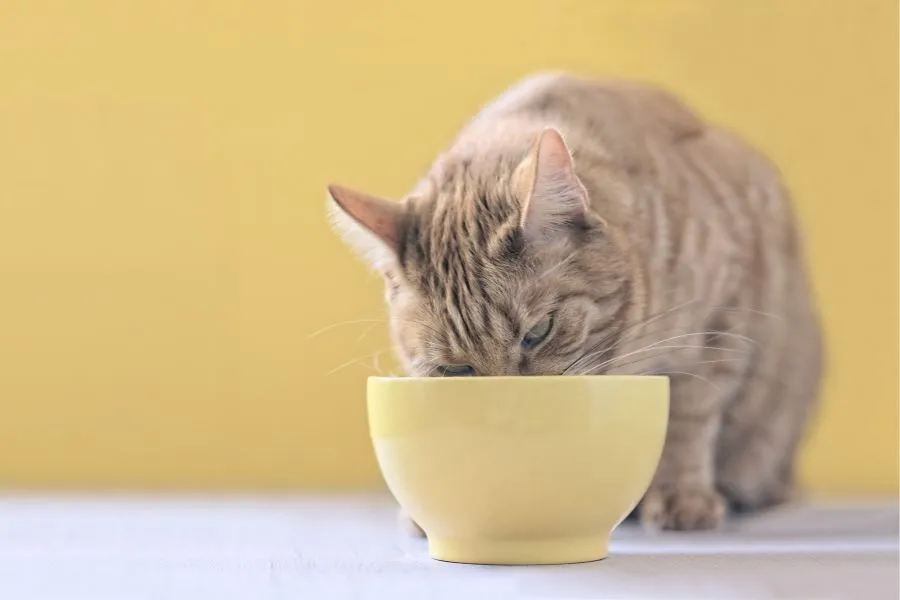Whether it’s the tantalizing aroma of beef jerky or its unique flavor and texture – there’s something about this snack that cats can’t resist. But the question is: can cats eat beef jerky?
In this blog post, we’ll answer this question – plus a few more – so your furry friend can enjoy that delicious treat safely!
Can I Feed My Kitten Beef Jerky?
Although beef jerky is a widespread human snack, it is not recommended for cats. Cats are obligate carnivores, meaning their diets must be composed chiefly of protein from animal sources.
Beef jerky does technically contain some protein, but it needs to be nutritionally balanced for a cat. It can cause severe digestive issues or even toxic effects due to its high salt content.
Beef jerky also contains spices and other additives that may harm cats. In general, processed meats like beef jerky are best avoided. Try fresh-cooked chicken instead if you want to give your kitten something special as an occasional treat.
It’s important to remember that cats do not require treats as part of their regular diet – they should get all the nutrients they need from commercially prepared cat food. If you feel your cat needs extra nutrition in addition to its normal diet, talk to your veterinarian about the proper supplementation for your pet’s specific dietary needs.
Why Is Beef Jerky Bad for Cats?
The phrase “each to their own” doesn’t always apply to cats and food. After all, some safe treats – maybe even healthy – for humans can be downright comically bad for your feline friend. Beef jerky, sadly, is one of those treats.
Many people treat their cats with snacks like beef jerky without realizing the potential dangers lurking behind this tasty treat. Here’s why you should avoid feeding your cat beef jerky:
Some beef jerky products contain significant amounts of salt or other seasonings that can make it very unhealthy for cats. The high sodium of jerky can cause serious digestive problems in cats, such as vomiting and diarrhea. Too much sodium can lead to dehydration and electrolyte imbalances, which may cause weight loss and weakness in cats.
In some extreme cases, too much salt ingestion can lead to complete kidney failure in cats if not addressed quickly enough by a veterinarian. It’s also important to remember that beef jerky usually contains a lot of fat, which is unsuitable for cats because they require a low-fat diet.
Cats also do not possess the enzyme necessary to break down sugary ingredients found in many types of beef jerky, which can lead to digestive problems and weight gain.
Many kinds of beef jerky also include artificial preservatives and flavors, which are unhealthy and potentially toxic for cats if ingested in large amounts over an extended period. Allergies are another concern with certain types of meat used in jerky; if your cat has an allergy, then feeding them jerky could put their health at risk!
Although beef jerky might seem like a tasty snack for your cat, it’s important to remember that it is not the best option out there – especially when there are plenty of other safe snacks specially designed for felines!

The Seasonings May Be Toxic to Cats
It is not recommended to feed cats beef jerky due to the potential toxins it may contain. Beef jerky is a popular snack item with many forms and flavors, so it is crucial to understand why it can be dangerous when eaten by cats.
One concern with beef jerky is the seasonings and preservatives used in making the snack. Cats are sensitive to certain spices, herbs, MSG, garlic powder, and onion powder often found in beef jerky recipes, so that these seasonings may be toxic to cats.
Additionally, beef jerky contains added sodium — too much of which can cause sodium toxicity in cats. As a result, feeding your cat regular or even occasional beef jerky snacks could be dangerous and should be avoided.
In addition to the potential for toxins from seasonings and other additives used during the preparation of beef jerky, another concern would be any raw meat that might have been used in making the product.
Cats cannot digest essential proteins, so eating uncooked beef products like this might make your cat very sick or worse if you give them some beef jerky snacks.
Overall, it is best not to risk potentially giving your cat something toxic by feeding them store-bought or homemade versions of this snack food product, as cats cannot safely eat traditionally processed beef jerky snacks.
If you must provide them something similar, you can offer them cooked plain ground beef without additional seasonings or preservatives added as an occasional treat!

Added Sugar Can Lead to an Obese & Unhealthy Cat
Beef jerky is not appropriate for cats due to its added sugar. While most cats love the taste of beef jerky, the fact that it can lead to obesity and other health problems is a significant concern.
High levels of added sugars in commercial products, such as beef jerky, can diminish a cat’s diet quality. The proposed result of sugary diets is usually obesity, diabetes, dental disease, and tooth decay if fed too frequently.
When nutritional values are considered, high-quality protein sources should be part of your cat’s diet. It helps support healthy growth and provides adequate amounts of essential amino acids that your cat cannot produce on their own, unlike carbohydrates and fats, which can be made in small quantities by cats.
Furthermore, high-fiber foods also help aid digestion while providing essential vitamins and minerals, which makes them a great option when considering what to feed your four-legged friend. Protein should come from a variety of sources, including animals such as fish, poultry, or beef jerky.
While these proteins are good sources of energy production, they must be carefully monitored for their sugar content. Added sugar in these products generally leads to way more calories than cats need every day due to their small body size relative to other animals, such as humans or dogs.
Cats with special conditions related to weight problems or diabetes should avoid treats like beef jerky and opt for proteins from healthy sources like fish or pureed liver. Also, not to disturb their nutrition levels too significantly when given as treats every once in a while.
These treats will always remain exceptions in any well-balanced diet due to their glycemic index levels, usually granted by added sugars or salts contained therein. So, it’s best to give them this kind of food occasionally.
High-Sodium Foods Can Lead to Dehydration
Can cats eat beef jerky? Though meat is generally a healthy food for cats, beef jerky can be a particularly unhealthy option due to its high sodium content. To be on the safe side, it is best to avoid giving your pet any beef jerky.
High-sodium foods can lead to dehydration and an electrolyte imbalance in cats. The more sodium your cat consumes, the more water it will need to balance out this salty effect.
Unfortunately, there is too much salt in most beef jerky for cats to safely consume it regularly. Drinking too much salt can lead to vomiting, diarrhea, and kidney and bladder issues.
Cats need plenty of protein in their diet but also need vitamins and minerals from whole food sources like fruits and veggies rather than snack foods like beef jerky or other processed meats.
You can give your pet lean meats like chicken or fish cooked without added salts or seasonings for a healthy snack alternative instead of giving them any processed meat products.
In conclusion, while cats may love the taste of beef jerky, this isn’t an ideal type of food for them due to its very high salt content, which has been linked with dehydration and other health problems in felines. As a responsible pet owner, offer only healthy snacks (and meals) when caring for your cat!

The Texture of Beef Jerky Can Be a Choking Hazard
Many cat owners have asked if their favorite felines can safely eat beef jerky. The short answer is no – beef jerky is not recommended for cats as it can be a choking hazard.
The texture of beef jerky is so tough that if a piece were to break off, it could become lodged in the animal’s throat and cause obstructions. Cats themselves cannot also chew the jerky correctly, so even if they try to swallow small pieces, there is still a risk of choking.
In addition, beef jerky for humans usually contains spices and additives such as garlic or onion powder, which can cause digestive upset in cats and could lead to vomiting or diarrhea.
It might also contain high levels of sodium which can cause cat dehydration. These risks increase when kittens or senior cats have also eaten the food item because of their delicate digestive systems.
If you feel like your drinking buddy deserves a special treat, give them one made explicitly for felines – there are lots of flavors available on the market now!
These treats are designed with softness and taste suitable for an obligate carnivore like a cat; plus, they’re free from harmful additives and spices humans enjoy in beef jerky but may not be safe for your feline friend.
Alternatives to Beef Jerky for Cats
Beef jerky can be a tasty reward for your kitty, but it’s essential to be aware of the risks before you add this food to your cat’s diet. Beef jerky is an alright treat for cats in moderation.
However, many cats have difficulties digesting it due to its high-fat content. As beef jerky can quickly become contaminated with bacteria and high levels of sodium which can be toxic for cats, it’s best to look for cat-appropriate alternatives instead.
If you’d like to give your four-legged friend a snack, here are some excellent alternatives to beef jerky that are safe and tasty:
Fish Jerky
Fish jerky is an excellent alternative to beef jerky as they contain omega 3 and 6 fatty acids, proteins, and vitamins. These healthy snacks help keep fur healthy and glossy while promoting healthy brain development in kittens.
Dried Meat Treats
An excellent way to introduce meaty snacks into your cat’s diet is by looking out for dried meat treats made explicitly for felines. These treats usually contain real, freeze-dried chicken or salmon with no added flavoring, preservatives, or salt.
Providing essential proteins and Nutritionals required by cats, these treats make great snack options safer than beef jerky.
Pet Store Snacks
Cat-approved wet food companies have begun offering convenient snacks such as meat bits or strips that come in small portable containers or bags similar in appearance to regular beef jerky.
That is incredibly safe for cats because they’re made from fresh or HPP (High-Pressure Processing) ingredients, which seal the moisture and nutrients necessary for your kitty’s well-being. Each nibble contains natural chicken breasts with no added artificial flavorings!

Jerky Treats Designed for Cats
Certain types of jerky treats are designed specifically for cats and can be an excellent source of nutrition. These treats, which can come in many flavors, including chicken, fish, and beef, are safe for cats as long as you follow the feeding instructions on the label.
Cats who eat these treats may need to be monitored to ensure they do not become overweight due to excessive consumption.
The jerky treats should also be free from added preservatives, artificial flavors, and colors. To further ensure safety and nutritional benefits, it’s best to purchase jerky treats from reputable companies that use all-natural ingredients sourced from reputable suppliers.
Since there is no one-size-fits-all concerning pet nutrition, it’s essential to read the label or consult your veterinarian if you have any questions about the nutritional value offered by the treat.
Cats enjoy the beef jerky flavor more than other flavors because they find it more palatable than other options, such as chicken or fish. Therefore, beef jerky can be an excellent reward for cats responding well to positive reinforcement training.
However, like all snacks for cats, these treats should only account for 5-10% of their daily caloric intake and should not replace critical daily meals that provide complete nourishment.
Some additional benefits associated with feeding cats these specially designed jerky treats include improved overall health thanks to added vitamins and minerals that many of these products contain, increased hydration due to the water content found in some brands’ products, assistance with weight loss due to their lower calorie count compared with other snacks for cats such as dry kibble or canned food.
Dried Fish
Many people enjoy feeding their cats assorted snacks and treats, but you should be aware that some of these “goodies” can be unhealthy or even dangerous.
Most vets advise against feeding cats things like raisins and chocolate, as these ingredients can cause many digestive issues. One item that has recently come into question is dried fish, one of the most popular snacks for cats.
This treatment consists of small pieces of fish that have been slowly dried over weeks or months so that all the moisture is removed. These dried fish pieces can fill kitty treat balls, crackers, and other snacks explicitly designed for cats.
Although this type of food might seem healthy on the surface, more research into its contents is required before it can indeed be deemed safe for regular consumption.
While dried fish may not necessarily add additional calories to your cat’s diet in a single sitting, ingesting too much in a day can certainly lead to an excessive amount of calories being consumed over time.
Cats are naturally small animals with large metabolisms, which often makes them especially prone to weight gain when given large amounts of sugary or fatty treats at once.
Additionally, because most commercial brands are salted before drying out, they may also contain excessive sodium, which could lead to gastrointestinal upset and dehydration if consumed in large enough doses throughout the week.

Conclusion
When considering whether or not to give your cat beef jerky, it is essential to recognize that cats are obligate carnivores, and salmon jerky is an exceptionally high-quality food source for them.
While cats can eat beef jerky as an occasional treat, beef jerky should not be considered a primary part of your cat’s diet as it may be too rich in fat or contain too much sodium.
Additionally, it may contain other ingredients that may not be suitable for cats, such as preservatives and spices.
In conclusion, while cats can eat beef jerky, it should only cover some of their diets. Feeding too much-processed meat, such as beef jerky, can lead to nutritional imbalances and health issues for your pet.
If you want to give your cat some protein-packed snacks occasionally, consider small quantities of salmon jerky or other high-quality treats instead.
